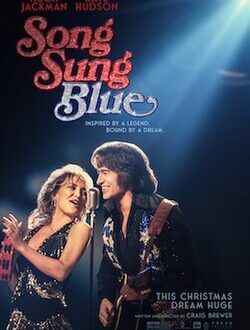At a glance, Benedict Cumberbatch possesses the kind of striking presence that effortlessly commands the screen—his tall, lean form, piercing gaze, and sharp line of delivery are instantly recognizable. But beyond that striking visage lies an actor of rare subtlety, one whose truthfulness in performance continues to resonate deeply across stage, television, and film. Over nearly three decades, he has evolved from a promising stage actor into one of the most compelling screen presences of his generation—an actor capable of quiet empathy, electric genius, and emotional breakdown, often in the same breath.
Born in London in 1976 to parents who were both actors—Timothy Carlton and Wanda Ventham—Cumberbatch was steeped in performance from the beginning. His childhood wasn’t gilded, yet it was rich with theatrical influence. After schooling at Harrow and brief gap-year adventures teaching English in a Tibetan monastery, he trained in drama at Manchester and earned a master’s in classical acting at LAMDA. This foundation in classical technique forged an actor deeply anchored in discipline, versatility, and emotional range.
Cumberbatch first caught attention in the UK theater scene, earning an Olivier Award for Best Actor for his commanding portrayal of Frankenstein’s monster. That breakthrough transformed what could have been a fleeting ascent into a narrative of sustained artistic depth. On television, he first emerged in the biopic Hawking, where his portrayal of Stephen Hawking carried quiet dignity and early acclaim. But it was his incandescent turn as Sherlock Holmes in the BBC series Sherlock that launched him into international stardom. With razor-sharp wit and an electric intensity, he made Holmes feel alive, modern, and absolutely magnetic.
That success might have locked him into a single type —an eccentric, hyper-intelligent lead. But Cumberbatch has deftly defied pigeonholing. In The Imitation Game, he brought vulnerability and brilliance to Alan Turing, embodying a man whose genius was crushingly personal. His performance signaled a maturity that balanced poetry with restraint, earning a well-deserved Oscar nomination. He followed this with equally nuanced turns in 12 Years a Slave, Tinker Tailor Soldier Spy, and The Power of the Dog—each distinctly different in tone, era, and emotional architecture, yet unmistakably imbued with his signature presence.
And then there’s the universe of blockbusters: voicing Smaug and the Necromancer in The Hobbit trilogy, commanding the Marvel universe as Doctor Strange, lending his voice to The Grinch and other memorable animated figures. In each, he never felt like pure star power; instead, he approaches genre material with conviction, intelligence, and a subtle emotional anchor that transforms spectacle into character.
What continues to separate Cumberbatch is the humanity he brings to characters who could easily seem cold, distant, or larger-than-life. Even at his most intense, there’s a humanity that emerges—a blink, a flicker at the corner of his eye, a breath held just a moment too long. It’s this that makes roles like Patrick Melrose or Dominick Cummings feel real, fraught, and sometimes entirely inconvenient.
Away from the spotlight, Cumberbatch remains thoughtfully private—aware of fame’s burdens, anchored by family, and driven by the work itself rather than the rewards. He’s spoken candidly about how touring stardom collided with his fears and responsibilities, particularly after becoming a father. Yet there’s no stilted heroism in that; just a quiet acknowledgment that life and art are tangled, fragile, and demanding.
Benedict Cumberbatch’s career isn’t defined by blockbuster logos or an unbroken stream of awards—though the awards and acclaim are there. It’s defined by consistency and curiosity: the choice to play geniuses and monsters, lovers and icons, without ever feeling typecast. His work insists on attention because it refuses to rely on flash. Whether he’s whispering in corridors of power or unleashing lyrical fury, room fills with presence—not spectacle but humanity distilled through craft.
In the end, what makes Benedict Cumberbatch a star is something far older and rarer than celebrity. He brings character to life. Not with posture or polish, but with the deep, unknowable rhythms of feeling. And that is what’s kept us watching—whatever form that feeling takes.




